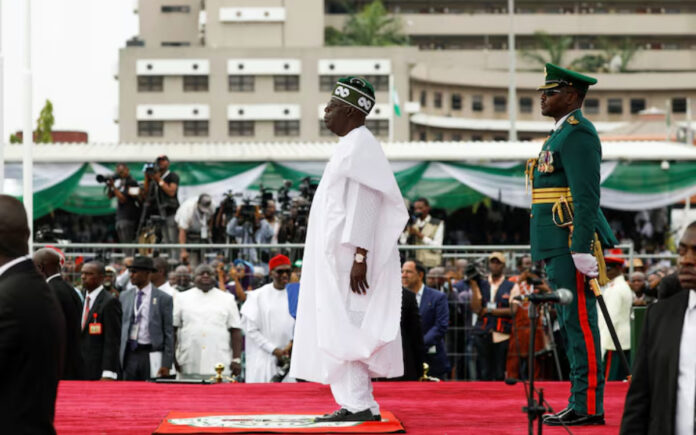Abuja: Nigerian President Bola Tinubu’s recent decision to sign a bill switching the national anthem back to “We Hail Thee”, composed by a British expatriate and used at independence, has sparked controversy. Critics view this move as a calculated distraction from the country’s deepening economic woes.
The bill, introduced last Thursday and swiftly adopted without legislative debate, replaces the current anthem, “Arise O’ Compatriots”.
Tinubu’s tenure has been marred by economic turmoil, with Nigeria’s economy plummeting during his first year in office. Inflation has soared to a 28-year high of 33.20%, exacerbating the challenges faced by ordinary citizens.
Also Read | Iran’s Khamenei Seeks Trusted Hardliner to Succeed Raisi in Upcoming Election
The decision to revert to the colonial-era anthem, repealed in 1978 by military head of state Olusegun Obasanjo, has raised eyebrows. While no official reason was given for its repeal, it was widely understood to be a rejection of symbols associated with British colonial rule.
Critics argue that amid mounting economic hardships and deteriorating security, prioritizing anthem changes is misguided. Cheta Nwanze, lead partner at SBM Intelligence, labeled the move a “waste of time”, emphasizing the urgent need for the government to address pressing issues such as inflation and security concerns.
Also Read | American Airlines Sued for Alleged Racial Discrimination Against Black Passengers
As Nigeria grapples with multiple crises, including economic instability and security challenges, many question the government’s focus on symbolic gestures rather than tangible solutions to improve the lives of its citizens.



